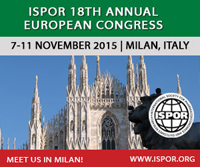Daptomycin (Cubicin) in patients with complicated skin or soft-tissue infections
DOI:
https://doi.org/10.7175/fe.v9i3.229Abstract
Skin and soft-tissue infections (SSTIs) are commonly observed and differ in terms of site and localization, clinical characteristics, and the aetiological agent; these infections are usually caused by Staphylococcus aureus or beta-haemolytic streptococci, and are the most frequent forms of methicillin-resistant S. aureus (MRSA) infections. SSTIs are considered complicated if they involve deeper skin structures (fascia or muscle layers), require significant surgical intervention or arise in the presence of significant co-morbidity. The progressive increase of bacterial resistance, in particular for Gram-positive bacteria infections, to currently used agents is a serious and growing problem, and in particular MRSA, GISA (glycopeptides-insusceptible S. aureus), VRE and GRE (glycopeptides-resistant enterococci) are of concern. There is, therefore, a need for additional agents active against these difficult-to-treat pathogens.Downloads
Published
2008-09-15
How to Cite
Sacchi, V. (2008). Daptomycin (Cubicin) in patients with complicated skin or soft-tissue infections. Farmeconomia. Health Economics and Therapeutic Pathways, 9(3), 163–166. https://doi.org/10.7175/fe.v9i3.229
Issue
Section
Brief drug profile
License
Authors who publish with this journal agree to the following terms:
- Authors retain copyright and grant the journal right of first publication with the work simultaneously licensed under a Creative Commons Attribution-NonCommercial 4.0 License that allows others to share the work with an acknowledgement of the work's authorship and initial publication in this journal.
- Authors are able to enter into separate, additional contractual arrangements for the non-exclusive distribution of the journal's published version of the work (e.g., post it to an institutional repository or publish it in a book), with an acknowledgement of its initial publication in this journal. The Publication Agreement can be downloaded here, and should be signed by the Authors and sent to the Publisher when the article has been accepted for publication in this journal.
- Authors are permitted and encouraged to post their work online (e.g., in institutional repositories or on their website) prior to and during the submission process, as it can lead to productive exchanges, as well as earlier and greater citation of published work (see The Effect of Open Access).
- Authors are permitted to post their work online after publication (the article must link to publisher version, in html format)






